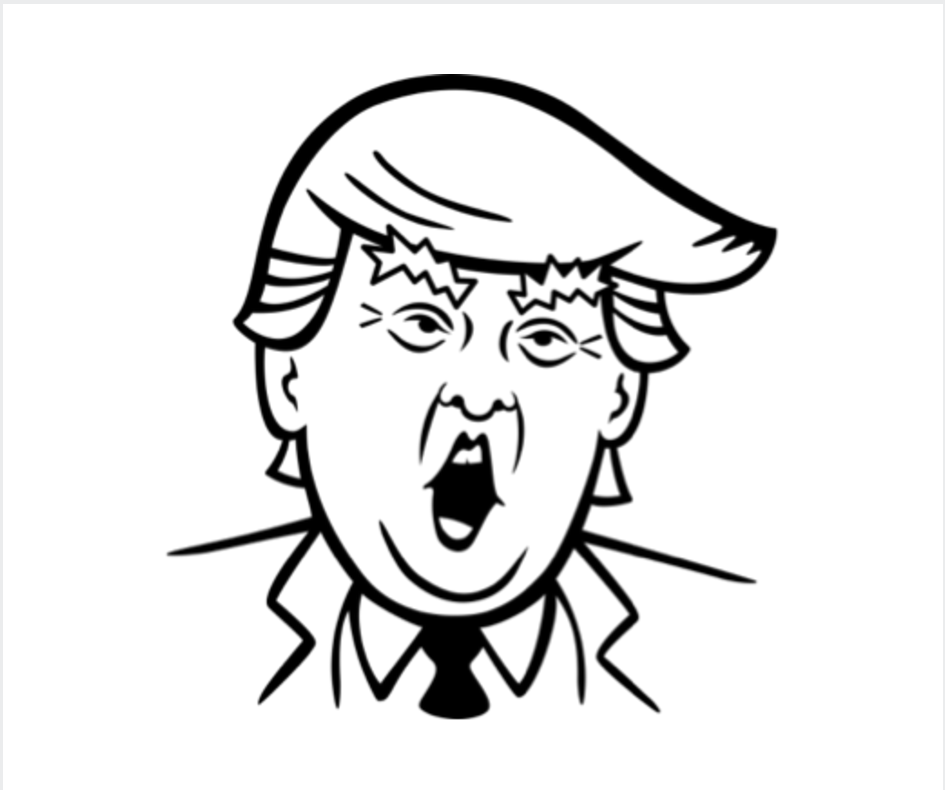President Trump pushes for economic policies that will harm the health of people and lower the standard of living of many American families. Trump combines a hypothetical free market model for his domestic policies, with an obsolete mercantilist model to close the borders and stop foreign trade.
This blog focuses on domestic policies, and next week on trade and globalization.
In the theoretical free market model, markets are competitive and everyone has perfect information and knows what the future holds. Competitive markets mean no company can make more than a normal profit (about 3% profit rate), and no CEO will become super rich. People find jobs that use their talents, because the economy operates at full employment. People can obtain the education they desire, and receive higher wages that reflect their higher productivity. The free market provides the consumer goods that people desire (and more is better), and competitive companies produce these goods and services without excess profits.
Does this sound like the world we actually live in, where large multinational companies in fact dominate markets, earn high profits, and pay their top executives millions of dollars? Where the few rich executives and celebrities live lavish lifestyles while millions don’t have adequate food, shelter, and health care?
Using the unrealistic free market model, Trump thinks that reducing taxes for the rich and for corporations will make the economy grow, and he thinks that the government should cut budget programs for goods and services that people can purchase in the private markets. In the free market model, the government should produce security (think military) and enforce private property rights (think courts). Otherwise the private sector will provide what consumers want, and can pay for.
This is the approach taken by the right-wing Heritage Foundation in their suggested budget cuts. No more funds for public transportation, the arts, clean air and clean water, or public health care. The courts protect private property, but not human rights or voting rights.
Trump’s Administration has deep ties to the fossil fuel industry, and his agenda pushes to keep our economy running on dirty fossil fuels, which continues to be subsidized with tax breaks. Support for implementing clean energy goes away, along with our RIO21 commitment to transition to clean energy and stop global warming.
Trump ignores the fact that “trickle down” of income from the rich to the nonrich does not happen when the taxes at the top are cut. He still pushes to cut taxes of the rich. Although the Federal Reserve explains how our economy is near its capacity (full employment), Trump says he can “grow the economy”. Even if the U.S. economy can grow, so far the economic growth of the past four decades has benefitted mostly the top 5% as the bottom 60% have watched their earning shrink and incomes stagnate.
Economists agree that we have allowed the U.S. infrastructure to deteriorate, although free market economics pushes for investment subsidies to big business, which can pocket big profits from many projects that were already being planned. Trump’s plan is to “build new roads, and highways, and bridges, and airports, and tunnels, and railways”, so that our transportation system that runs on fossil fuel can continue to function.

Buddhist economics provides an alternative to help U.S. families and workers, to creat comfortable, meaningful lives for all people and a healthy planet. People want jobs that pay a living wage and provide them with a sense of accomplishment. People also want balanced lives that give them time for family and community.
Chasing after more and more income does not make us happy. Living in harmony and helping each other makes us happy. Enjoying nature and having clean air and water makes us happy. When we transfer income from the wealthy to those in need, our economies improve people’s well-being. The government invests in modern infrastructure for clean energy cities that no longer rely on fossil fuels. We use our military budgets in cooperation with other countries and the United Nations to support sustainable development globally.
Americans are naturally kind and generous people. We want to reduce global warming, relieve starvation and extreme poverty around the world, and cooperate with the United Nations to stop wars and conflict and ensure human rights for all people. We want to be secure. Buddhist economics provide a way to make the country truly great as we all come together to live mindfully.
Buddhist economics looks to the basic goodness in all of us, and reminds us that the suffering of one person causes suffering for everyone. Now is the time to reduce the painful anger of the Trump supporters, along with the pain of people around the world who are suffering from hunger and from climate change.
We must have the moral courage to act, to speak out, to mobilize with people around the world to stop harmful policies by the Trump Administration and to demand that our governments do the right thing.
We have no time to lose, and together we can move to a bright future for everyone!
